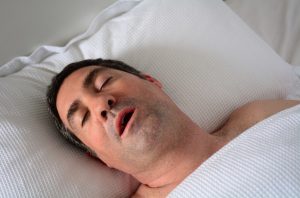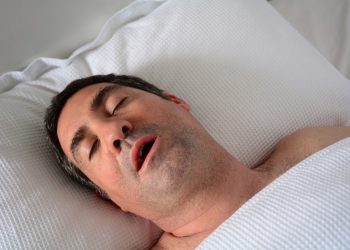
In this blog, NYC pulmonologist Dr. Marc Bowen with MXBowen, Physician P.C., Health & Breathing Center will explain more about this disorder as well the dangers and symptoms of sleep apnea that’s untreated.
What is sleep apnea?
Sleep apnea is a disorder characterized by repeated interruptions of breathing during sleep. The most common type, obstructive sleep apnea (OSA), is caused by a blockage of your upper respiratory airways. This can occur for a variety of reasons, including throat muscles that collapse into the airway or the tongue falling back into the airway.
As a result, your breathing can stop and start over and over again throughout the night, and because you probably don’t fully awaken, you may be unaware that it’s happening. If you’re like many people with sleep apnea, you don’t realize that you have it.
Sleep apnea causes your body and brain to repeatedly be deprived of oxygen they need, and this can cause a wide variety of symptoms.
What are the symptoms of sleep apnea?
The following are some of the most common symptoms of sleep apnea:
- Loud snoring
- Excessive daytime sleepiness or lack of energy
- Making gasping or choking sounds during sleep
- Awakening suddenly and feeling short of breath
- A dry mouth or sore throat when you wake up
- Morning headaches
- Difficulty staying asleep
- Restless sleep
- Cognitive changes such as forgetfulness
- Mood changes such as increased irritability
What are the health risks of untreated sleep apnea?
Studies have strongly linked sleep apnea to an increased risk of cardiovascular issues including high blood pressure, irregular heartbeat, and heart attack.
As your breathing pauses, the oxygen levels in your blood drop. Your brain will partially awaken and send signals to tell your blood vessels to tighten up in an effort to increase the flow of oxygen. This makes your blood pressure increase at night, and it can start to elevate during the day as well.
High blood pressure can substantially raise your chances of developing heart disease (including congestive heart failure) or having a stroke or heart attack.
In addition, you may also face an increased risk of developing the following health issues if you have untreated sleep apnea:
- Type 2 diabetes – Sleep apnea can impair your body’s ability to properly use insulin, which can raise your blood sugar levels.
- Weight gain – You’re more likely to release more ghrelin, a hormone that makes you crave carbohydrates and sweets. You may also be less able to convert the food you eat into energy when you’re constantly tired.
- Car and workplace accidents – Excessive daytime sleepiness can make you far more likely to be involved in a car or workplace accident. In fact, people with sleep apnea are up to five times more likely to have an auto accident when compared to normal sleepers.
How is sleep apnea diagnosed?
A diagnosis of sleep apnea can only be confirmed or ruled out by a sleep study. This non-invasive test can be conducted at a hospital sleep center or at home, and it gives your doctor a great deal of specific information about what happens to your body as you sleep. It measures oxygen and carbon dioxide levels, brain activity, heart rate and rhythm, breathing rate and rhythm, snoring, muscle movements, and more. This information will allow your doctor to definitively determine if you have sleep apnea.
Where can I find treatment for my sleep apnea?
Dr. Bowen’s practice is dedicated to providing a personalized approach to patient care. We offer home sleep studies so patients won’t have to spend the night away from home or try to fall asleep in an unfamiliar environment. You’ll simply wear a small, easy-to-use device overnight and may also be asked to keep a sleep diary.
After your sleep test, simply return the device to Dr. Bowen, who will interpret your results and discuss them with you at a follow-up appointment. If a diagnosis of sleep apnea is made, we’ll offer treatment options that can help improve your sleep and overall health.
If you snore or are experiencing other symptoms of sleep apnea, make an appointment with MXBowen, Physician P.C., Health & Breathing Center today. It’s important to be correctly diagnosed so you can receive treatment, get the sleep you need, and avoid related health issues.

